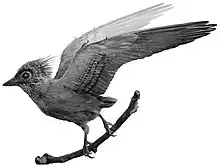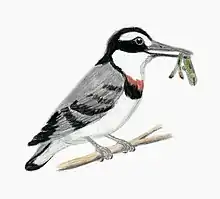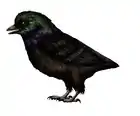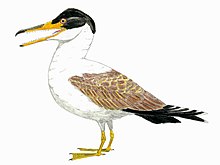Albertavenator
Albertavenator (meaning "Alberta hunter") is a genus of small troodontid theropod dinosaur, known from the early Maastrichtian in the Cretaceous period. It contains a single species, A. curriei, named after paleontologist Phil Currie, based on a partial left frontal found in the Horseshoe Canyon Formation of Alberta during the 1990s.[1][2] Albertavenator's discovery indicates that small dinosaur diversity may be underestimated at present due to the difficulty in identifying species from fragmentary remains.[3]
| Albertavenator Temporal range: Late Cretaceous, | |
|---|---|
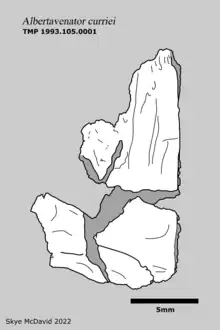 | |
| Illustration of the holotype frontal of Albertavenator | |
| Scientific classification | |
| Domain: | Eukaryota |
| Kingdom: | Animalia |
| Phylum: | Chordata |
| Clade: | Dinosauria |
| Clade: | Saurischia |
| Clade: | Theropoda |
| Family: | †Troodontidae |
| Genus: | †Albertavenator Evans et al., 2017 |
| Type species | |
| †Albertavenator curriei Evans et al., 2017 | |
References
- Evans, D.C.; Cullen, T.M.; Larson, D.W.; Rego, A. (2017). "A new species of troodontid theropod (Dinosauria: Maniraptora) from the Horseshoe Canyon Formation (Maastrichtian) of Alberta, Canada". Canadian Journal of Earth Sciences. 54 (8): 813–826. Bibcode:2017CaJES..54..813E. doi:10.1139/cjes-2017-0034.
- DinoChecker Archives ALBERTAVENATOR
- "New species of dinosaur named after Canadian icon: Dinosaur species from Alberta".
This article is issued from Wikipedia. The text is licensed under Creative Commons - Attribution - Sharealike. Additional terms may apply for the media files.
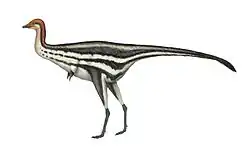
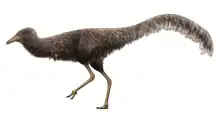
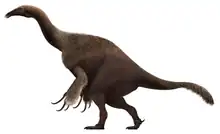
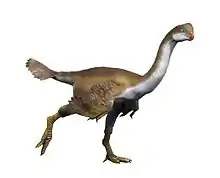
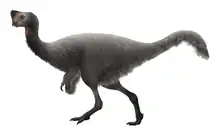
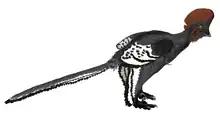


.png.webp)

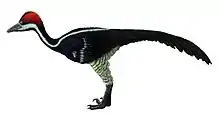
.jpg.webp)
